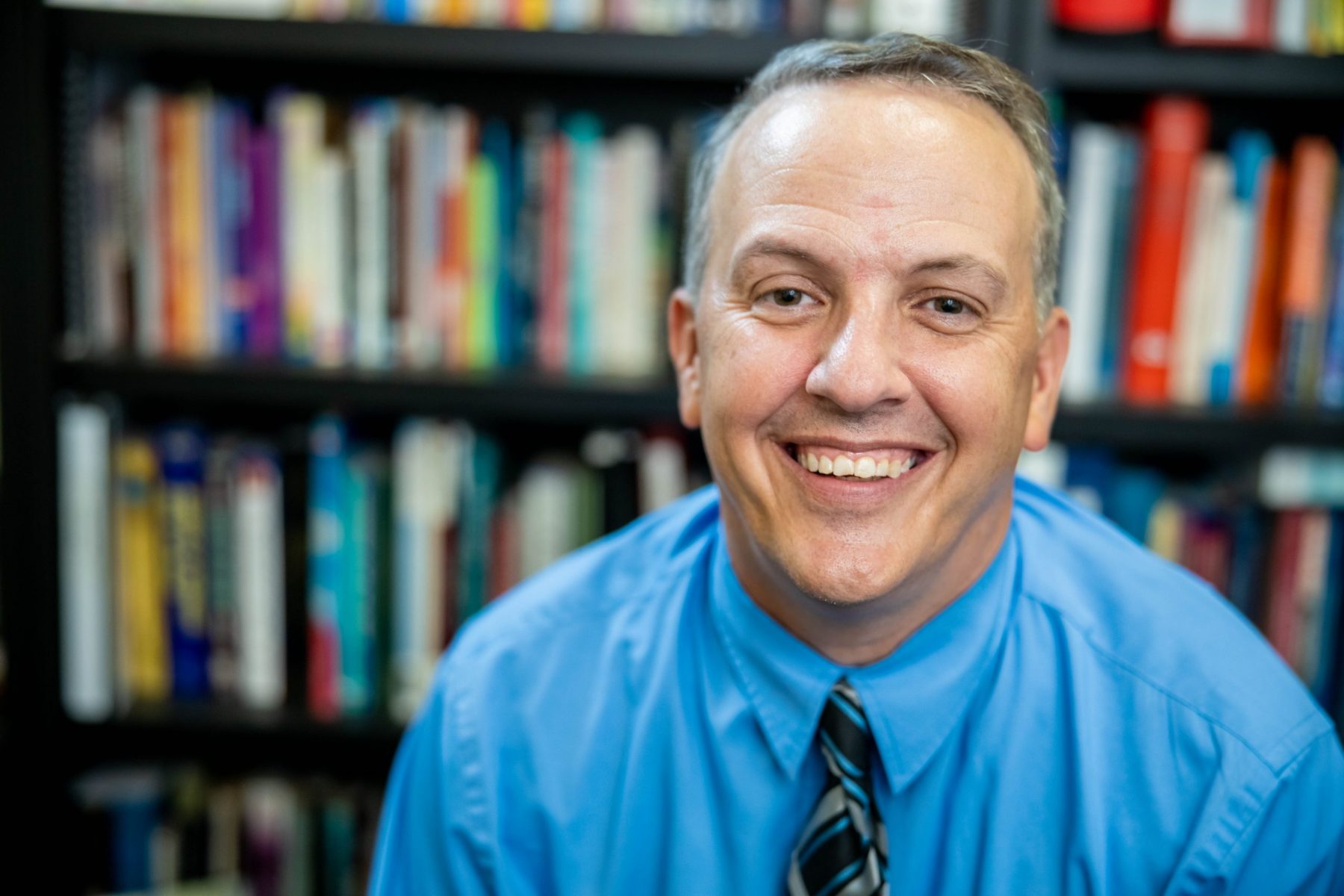When you study at Grace, you get the opportunity to work with professors with a variety of backgrounds. Dr. Kevin Roberts, Dean of the School of Behavioral Science brings a wealth of expertise and heart to the classroom as he guides students with a specialized understanding of mental health in hospitals, an extensive background in research, and an undying commitment to serve students.
Here are four fun facts we bet you don’t know about Dr. Roberts’ life and all he has accomplished in the field of behavioral science.
1. Integrating the mental health field is one of his greatest passions.
Roberts worked in both the mental health field and healthcare system for 12 years. During this time, Roberts was enlightened to the need for research in the mental health field when working with patients with chronic illnesses. According to the World Health Organization, a person with a mental health illness will live 10 to 25 years less, most often due to an accompanying physical illness. Roberts says, “It becomes not just about improving the person’s length of their life, but it’s putting life back into those years.”
“I became very passionate about integrated health and the need to not see them as two separate systems,” he says. “When you have two separate systems, a healthcare side and a mental health side, the gaps between them are where you will most likely find the patient and it hurts both their quality of life and length of life. It’s also incredibly expensive for our country to view these systems as two separate silos. I believe the only way forward in our country is through a more integrated and holistic model of care,” Roberts says.
According to the CDC, we spend 90% of all healthcare dollars on chronic diseases and mental health combined which is in excess of 3.8 trillion annually. “Sadly, we have decades of research now indicating that integrated behavioral healthcare produces lower costs and better patient outcomes.”
2. He has done extensive hands-on research in behavioral science.
While working in the mental health field in an internal medicine office, Dr. Roberts and his colleagues did a 2 ½ year study on patients who were treatment resistant with diabetes. In order to get to the core of the issue, Roberts and the team would utilize psychological testing instruments, interviews and follow up appointments to identify the barriers to successful self-management of patients’ chronic illness. “What we found was that each patient presented their own unique challenges and barriers, and through the assessments, we were able to identify a roadmap for success,” said Roberts.
They found that sometimes patients who were more resistant to treatment were overwhelmed with information at the doctor’s office and could not remember everything they needed to know. “It really helped us to understand who you can give a lot of information to, who you cannot, and when,” Roberts says.
When they examined the psychological testing results of the research subjects, they found that the patients who were angry or seemed treatment resistant were in fact those people who were most likely to change if provided with a roadmap to success. According to Roberts, they also discovered that the “really nice people” who had high cooperative/agreeing scores were less likely to be successful because they were particularly adept at saying what clinicians and physicians wanted to hear. Roberts says, “We learned we needed to ask different questions and approaches for those who were adept at telling us what we wanted to hear.”





